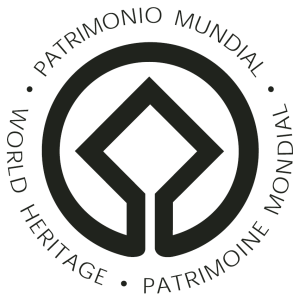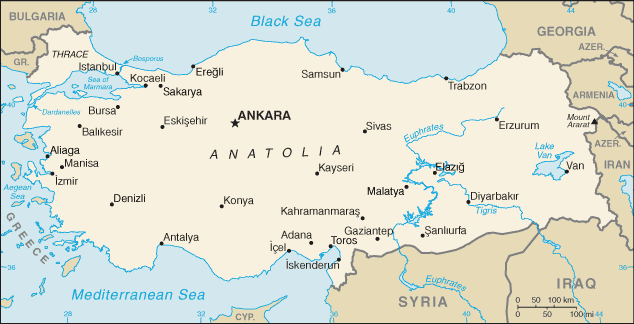Turkey lies at the crossroads between Europe and Asia and has been at the centre of some of the world's great civilisations, from the Hittites and Lycians to the Greeks and Romans and the Byzantines and Ottomans. This has left Turkey with a myriad of historical sites and monuments that you could spend years exploring but the best place to start is at the extraordinary Roman ruins at Ephesus. Turkey's cultural heritage is matched by its natural attractions, which include the stunning coastlines along the Mediterranean, Aegean and Black Sea, the spectacular Taurus Mountains and the otherworldly landscapes at Cappadocia, replete with rock carved churches and subterranean cities. For lovers of adventure, the Lycian Turquoise Coast offers a wide range of adrenaline activities or a more sedate cruise on a traditional gulet ship. Explore in depth highlights of Turkey.
| Tours | Unesco WHS | Guidebooks |
|---|---|---|
| groups tours with set departures |
World Heritage Sites | country, regions and cities |
| Time zone: | GMT +2 (Eastern European time) |
|---|
| Daylight savings: | GMT +1hr, begins last Sunday in March; ends last Sunday in October |
|---|
| Main languages: | Turkish | Other languages: Kurdish |
|---|
| Currency: |
Turkish liras (TRY) €1 = TL3.29, $1 = TL2.00, £1 = TL3.92 (rates as of Sep 2016) |
|---|
| Internet Domain: | .tr | International Dialling Code: 90 |
|---|
For help planning your trip to Turkey including visas, vaccinations, currency exchange, flights, accomodation and insurance, see our Turkey trip planning page.




Further information on Turkey
Discover more about Turkey - the country's geogrpahy and natural features, an assessment of its status on freedom and rights and data on the country's population and economy.
Geography & Natural Features
Total area: 780,580 sq km (9,820 sq km under water)
Coastline: 7,200 km (Aegean Sea, Black Sea, Mediterranean Sea)
Neighbours (border lengths): Armenia (268km), Azerbaijan (9km), Bulgaria (240km), Georgia (252km), Greece (206km), Iran (499km), Iraq (352km), Syria (822km)
Climate: Turkey has a diverse landscape and climate. Coastal areas have hot, dry summers and mild, wetter winters. Interior climate is more extreme, very hot and arid in the summer and sever, cold winters.
Highest mountain: Mount Ararat (5,166m) - Climb this mountain!
Freedom & Rights
Summary status and rankings for Turkey from classifications of different organisations measuring political and economic freedom, democracy and civil rights. See more details of these rankings.
| Index | Status | Rank | |
|---|---|---|---|
 | Freedom in the World | Partly Free | - |
 | Democracy Index | Hybrid regime | 98/167 |
 | Economic Freedom | Moderately Free | 70/179 |
 | Press Freedom | Difficult situation | 147/179 |
 | ILGA LGBT rights | Limited rights | - |
 | Corruption Perceptions | Medium corruption | 64/174 |
| Overall Ranking: | 96/195 | ||
Other Data & Links
Full name: Republic of Turkey Status: Independent Country
Population: 81,619,392 (rank: 16/196) Density: 104.5 people/sq km (rank: 78/196)
Ethnic groups: Turkish 80%, Kurdish 20% (estimated)
Religions: Muslim 99.8% (mostly Sunni), other 0.2% (mostly Christians and Jews)
GDP (PPP): $1167 billion GDP per capita: $15,300 (rank: 70/195)
Information derived from the CIA World Factbook. Other country profiles: BBC News.












